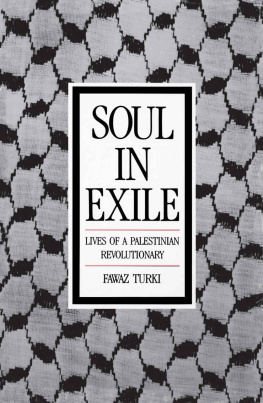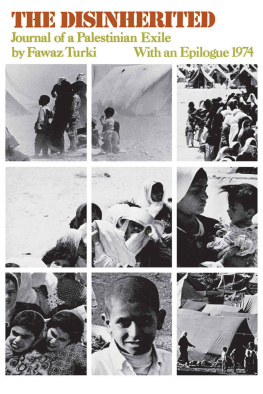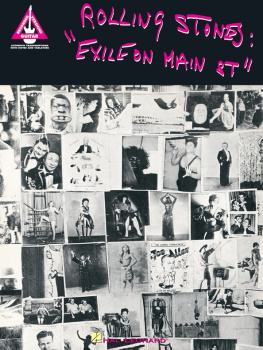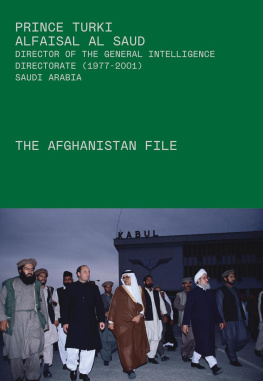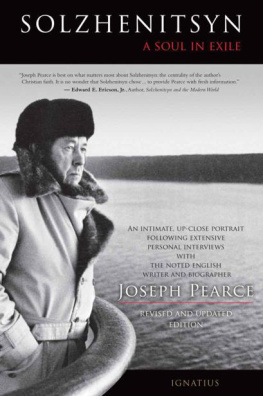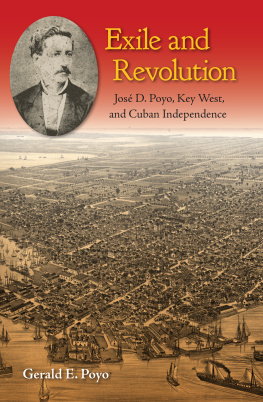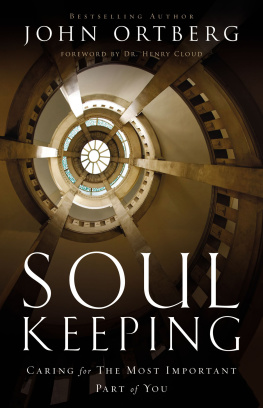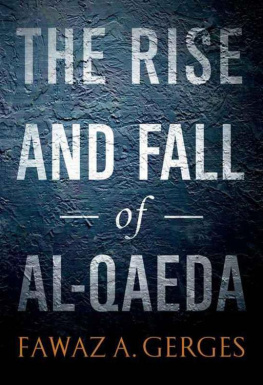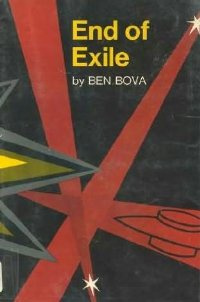Fawaz Turki - Soul in Exile
Here you can read online Fawaz Turki - Soul in Exile full text of the book (entire story) in english for free. Download pdf and epub, get meaning, cover and reviews about this ebook. year: 1988, publisher: Monthly Review Press, genre: Home and family. Description of the work, (preface) as well as reviews are available. Best literature library LitArk.com created for fans of good reading and offers a wide selection of genres:
Romance novel
Science fiction
Adventure
Detective
Science
History
Home and family
Prose
Art
Politics
Computer
Non-fiction
Religion
Business
Children
Humor
Choose a favorite category and find really read worthwhile books. Enjoy immersion in the world of imagination, feel the emotions of the characters or learn something new for yourself, make an fascinating discovery.
- Book:Soul in Exile
- Author:
- Publisher:Monthly Review Press
- Genre:
- Year:1988
- Rating:3 / 5
- Favourites:Add to favourites
- Your mark:
- 60
- 1
- 2
- 3
- 4
- 5
Soul in Exile: summary, description and annotation
We offer to read an annotation, description, summary or preface (depends on what the author of the book "Soul in Exile" wrote himself). If you haven't found the necessary information about the book — write in the comments, we will try to find it.
Soul in Exile — read online for free the complete book (whole text) full work
Below is the text of the book, divided by pages. System saving the place of the last page read, allows you to conveniently read the book "Soul in Exile" online for free, without having to search again every time where you left off. Put a bookmark, and you can go to the page where you finished reading at any time.
Font size:
Interval:
Bookmark:
Thank you for buying this ebook, published by NYU Press.
Sign up for our e-newsletters to receive information about forthcoming books, special discounts, and more!
Sign Up!
A publisher of original scholarship since its founding in 1916, New York University Press Produces more than 100 new books each year, with a backlist of 3,000 titles in print. Working across the humanities and social sciences, NYU Press has award-winning lists in sociology, law, cultural and American studies, religion, American history, anthropology, politics, criminology, media and communication, literary studies, and psychology.
SOUL IN EXILE
LIVES OF A PALESTINIAN REVOLUTIONARY
FAWAZ TURKI

To Camilla Spain,
with gratitude for all the rebel songs
from the liberated zones of Ireland
Copyright 1988 by Fawaz Turki
All rights reserved
Library of Congress Cataloging-in-Publication Data
Turki, Fawaz, 1940
Soul in exile.
1. Turki, Fawaz, 1940 . 2. Refugees, ArabBiography. 3. Palestinian ArabsBiography. 4. Jewish-Arab relations1949 . I. Title. HV640.5.A6T87 1988 956.04 88-1455
ISBN 978-0-85345-747-3 paper
Monthly Review Press
146 West 29th Street, Suite 6W
New York, NY 10001
Most people, not least of all Arabs, consider the capital cities of the Maghreb countries of North Africa to be steeped in French culture. That may be true of Tunis and Rabat. Not so Algiers. Here people have thoroughly scrubbed all the grime of the colonial past off their national body. Streets, squares, parks, marketplaces, and other city landmarks are named after heroes of the war of independence. People read El Mojahed, not he Monde. Road signs are in Arabic. Cafs have terraces, as in Paris, but they are filled with a generation of young Algerians who have grown up with little recollection of the Pieds Noirs nightmare. This is a blue-collar city, not without its share of drabness. But its inhabitants, unlike those of other cities in North Africa and the rest of the Arab world, are not so helpless economically that they have to import their matches, their soap, and their pencils.
Algerians forever remind you, and each other, how costly it was for them to gain their independence. True, this independence has not produced economic miracles. Life here is still lived close to the bone. It does not allow, as in Western society, or monied society in some Arab countries, for afternoons of brie and beaujolais nouveau, for annual vacations by the seashore and shopping sprees at department stores. Thousands of Algerians still emigrate each year to Western Europe in search of a place as guest workers.
In the Middle East, however, Algerians are seen as the Germans of the Arab world, hard working and persistent, though at times stolid and humorless, respected for their accomplishments in national reconstruction. Respected, but not, unfortunately, emulated.
At the Algiers airport, the clean and spacious VIP lounge is located in a separate building. Its officials speak in soft, polite tones. Attendants attired in national dress serve coffee.
The main terminal, however, resembles all main terminals in the Arab world, crowded with passengers and their relatives and veiled women and children and peddlers and lottery-ticket sellers and taxi drivers and pickpockets and porters and policemen. And soldiers everywhere with submachine guns. You choke in the heat. You are overpowered by the pungent smells and the dust. And you wonder if you are going to be arrested or questioned or delayed. You worry about that even if you are a citizen of Algeria. But if you are a Palestinian, you worry more. You know that you have no recourse to justice. You have no state, no embassy, no institution of any kind to protect you in a moment of crisis. Thats how it has always been for Palestinians; but you dont mind or care.
You have worn your sense of otherness all these years as a consciousness more intimately enfolding than your own skin. Statelessness is your only state, and you have long since developed an aboriginal sense of how to live there. You have grown up thinking that only in hell is there likely to be a halcyon statehood without the implosive stresses of national struggle. Perhaps a state is only a fantasy in the crazed dreams of your people, devised to contain the terrors of their history.
No matter though. The five thousand Palestinians who have been arriving in Algiers around the first week of February 1983 know they need not worry. They are received at the VIP lounge. As celebrities. As revolutionaries. They are, after all, arbiters of the destiny of the Palestinian people and are in the Algerian capital to attend the sixteenth session of the Palestine National Council (PNC), their parliament-in-exile. Among them are the 355 council members, all manner of council officials and functionaries, observers, journalists, and activists, as well as foreign dignitaries and solidarity group representatives.
I too stand there clutching my passport. There is something formidably, unendurably pitiful about the way a person, stateless all his life, clutches a passport once he gets one. I look at all the other Palestinians around me, coming from a bewildering multiplicity of countries, and experience a kind of emotional vertigo. We have all grown up and lived not only in diverse locales in the Arab world, but also in Western and Eastern Europe, in North and South America, in Africa and the Far East. Yet we have managed to keep our communal sense of national reference bounding and rebounding among us, like jugglers weights, from year to year, from place to place, from generation to generation, so that we now understand each other, as if through a common trick of feeling.
As I sit in the lounge, memories of more flamboyant times cross my mind. A mere eight months before, what had taken a whole generation to build had been at its magical height. There was not a Palestinian alive then on whose life the Movement, the Revolution, the Resistance (as it was alternately called) had not etched a deeper national sensibility and inner excitement. There was not a Palestinian alive between the battle of Karameh in 1968 and the siege of Beirut in 1982 who was not radically transformed at the core. Our society had experienced a dynamic awakening at its vital centers of query and apprehension. Our national folk troop had found in music and dance a liberating function of culture and was recreating dabki dances and the use of our musical instruments, the yarghoul and the oud. The Palestine Film Institute was projecting lucid imagery on the screen and showing how a society, once held inert by its sense of refugeeism, could, through national struggle, impose coherence on the botched landscape of its everyday reality. The Palestine Research Center had amassed the worlds largest library on Palestinian history, along with a large number of artifacts, artworks, and old manuscripts dealing with our culture. A whole institute employing hundreds was established to resurrect the ancient art of embroidery. Our poetry, fiction, belles lettres, science, and system of education were enriched at their core of meaning.
A new tense, a tense of reality brought to a higher pitch of subtlety, was being added to the grammar of our cultural life, flourishing even under the occupation. To elude the censorship and restrictions while remaining responsive to the native sensibility, our writers were compelled to sharpen and restructure their metaphors and allusions, their use of image and style.
Next pageFont size:
Interval:
Bookmark:
Similar books «Soul in Exile»
Look at similar books to Soul in Exile. We have selected literature similar in name and meaning in the hope of providing readers with more options to find new, interesting, not yet read works.
Discussion, reviews of the book Soul in Exile and just readers' own opinions. Leave your comments, write what you think about the work, its meaning or the main characters. Specify what exactly you liked and what you didn't like, and why you think so.

